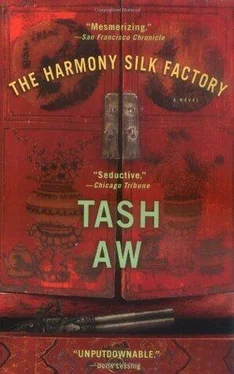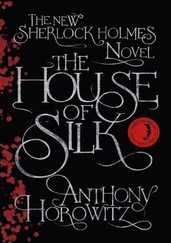Snow’s family was descended, on her father’s side, from a long line of scholars in the Imperial Chinese Court. Her grandfather came to these warm Southern lands in the 1880s, not as one of the many would-be coolies but as a traveller, an historian and observer of foreign cultures. He wanted to see for himself the building of these new lands, the establishment of great communities of Chinese peoples away from the Motherland. He wanted to record this phenomenon in his own words. But like his poorer compatriots, he too began to feel drawn to the sultry, fruit-scented heat of the Malayan countryside, and so he stayed, acquiring a house and — more importantly — a wife who was the daughter of one of the richest of the new merchant class of Straits Chinese. This proved to be an inspired move. His new wife was thrilled to be married to a true Chinese gentleman, the only one in the Federated Malay States, it was said. He in turn was fascinated by her, this young nonya. To him she was a delicate and mysterious toy; she wore beautifully coloured clothes, red and pink and black, and adorned her hair with beads and long pins. She spoke with a strange accent, the same words yet a different language altogether. This alliance between ancient scholarship and uneducated money was a great success from the start, especially for Grandfather Soong (as he came to be known), who was rapidly running out of funds.
His talent for finding an appropriate partnership appears to have passed on to his son T.K., who proved to be even more astute. While managing to cling to his father’s scholarly heritage, T.K. also managed to learn the ways of the new Chinese — the ways of commerce and industry. He did so through his wife, Patti, who was the daughter of no less a person than the Kapitan of Melaka’s right-hand man. T.K. and Patti were a formidable pairing indeed.
T.K. had always shown exceptional promise, even as a young boy. He passed his examinations in law at the University of Malaya with the highest honours and for a brief spell studied at Harvard before impatience, boredom, and cold weather brought him home. For a while, he considered pursuing a career in banking in Singapore, but opted instead to return to the Valley, where there were none of the distractions that abounded in Singapore — nightlife, foreign money, women. He was a notable calligrapher and painter, and his home was decorated with many scrolls of Tang poems, written in his own flowing hand. Many of them have been rehung in that old house, the same house which was Snow’s home and, briefly, Johnny’s too. The house is now inhabited by Patti’s relatives — my cousins, I suppose, though I do not know them.
Like me, T.K. was the only son of a wealthy family in an area where wealthy families were uncommon. People would have known and talked about him simply because of who he was, even before he had done anything of note. It is a difficult thing to live with. When you know that everyone talks about you behind your back, while looking at you with silent eyes, it can sometimes have an effect on you. Not everything they say is good, for although people may admire your standing in life, they may also boil with jealousy and hatred. It makes you think differently from other people, and maybe it even twists your character, making you a different person from the one you would have been if you lived alone in an igloo at the North Pole. That was the case with T.K. A young man like him wearing smart Western clothing and spending his time painting would have aroused much comment. In the end, it was the burden of what other people said that made T.K. settle down and build a life and a family for himself, just as his father had before him.
Firstly, he changed his appearance. He swapped his Western suits for the traditional Chinese clothes his father once wore, the attire of a Manchu civil servant — long shirts made of the richest brocade, trousers of plain, good silk. This kind of dress was no less conspicuous in rural Malaya, and many people thought it was merely a phase which he would soon leave behind. But he persisted with it to the end of his days; it is how he is dressed in the stiffly posed photographs which survive. He continued reading classical Chinese texts; he wrote and he painted. But his demeanour changed. Whereas before he had been flamboyant and easily excitable, now he was serious and calmly spoken. At last, sighed his parents, he took an interest in business. He benefitted from family connections and became involved in large-scale enterprises such as commercial loan-making and the import and export of tin and rubber to Europe. He got married too.
Patti was said to have been a woman of notable beauty, although to my eyes hers must have been a beauty of that particular age. Certainly, the worn sepia-tinted portraits do not do any of their subjects justice, but even so, she appears sullen and withdrawn. If you look closely, you can see where Snow inherited the cold streak that she was said to have possessed. Patti’s mouth is drawn tight and thin, her eyes hard and dark. Her looks are not dissimilar to her daughter’s but her beauty (if it is beauty) is of a harsher variety.
Though I close my eyes and search my memory I cannot recall ever having seen T.K. and Patti Soong, my grandparents. They exist only as ghosts, shapeless, shadowy imprints on my consciousness. Sometimes I wonder if there is any chance that I might have liked them, loved them. Even ghosts and shadows are capable of being loved, after all. But always, the answer is “No.” I would not have loved them even if I had known them, because when the debits and the credits have been weighed, T.K. and Patti fall on the wrong side of the line between good and evil. It was their desire for Snow, my mother, to marry a rich man that pushed her into the arms of Johnny. Nothing can ever atone for that.
BY THE TIME Snow was of marriageable age, Johnny was already well known across the Valley. He was the sole owner of the most profitable trading concern in the Valley and was widely admired in all circles. As with all beautiful young women of a certain background, Snow had already had a good deal of experience of suitors and tentative matchmaking. All of these possibilities had been created and choreographed by her parents. They took her to Penang, KL, and Singapore, where she was displayed like a diamond in a glass box. Yet it was closer to home, at the races in Ipoh, that they found the first serious contender. He was a beautiful-looking boy with a powder-pale complexion to match Snow’s. He had large, clear eyes and stood tall and erect with all the dignity you would expect from a son of the chief superintendent of police. When he was introduced to Snow he kissed her hand—kissed it — a gesture he had learnt during his days travelling in Europe. He complimented Patti on her sumptuous brocade dress and quietly whispered a tip for the next race in T.K.’s ear.
It wasn’t long before Snow and the superintendent’s son were allowed to take tea together. They sat exchanging polite conversation. She talked about books — novels she had read — while he nodded in agreement. Although T.K. and Patti were pleased with his dignified manner and solid background, it was his family’s home which brought greater excitement to them, for the superintendent had recently built a modern, Western-style house in which many of the rooms had wall-to-wall carpets. The main dining room had one wall of pure glass so that it served as an enormous window. Such daring was indicative of considerable wealth, an impression which was confirmed by the quality of the jade jewellery worn by the boy’s mother: dark in colour with a barely marbled texture. To top it all, Snow and the boy looked such a pretty pair and would surely attract all the right comments when the time came for them to venture into the public eye.
Читать дальше
Конец ознакомительного отрывка
Купить книгу












